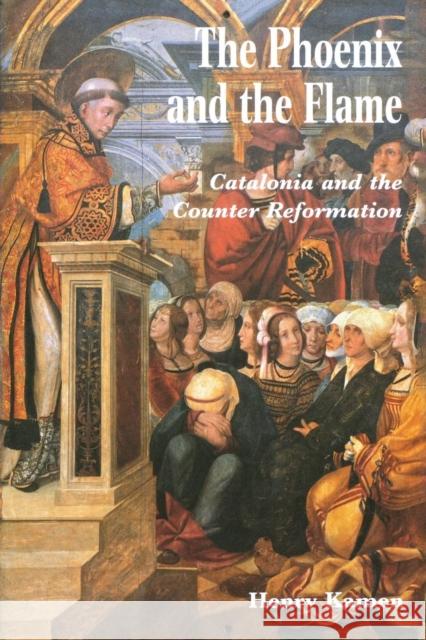The Phoenix and the Flame: Catalonia and the Counter Reformation » książka
The Phoenix and the Flame: Catalonia and the Counter Reformation
ISBN-13: 9780300209648 / Angielski / Miękka / 2014 / 528 str.
In sixteenth-century Europe, culture and religious belief were so enmeshed that they informed and underpinned every act, however mundane, of every ordinary man or woman. But while the Reformation is acknowledged to have brought revolutionary change to Western society, the people of Catholic Europe have usually been regarded as little affected. Spain, in particular, is supposed to have escaped the winds of change entirely. Now, by considering the life of one small, but lively and distinctive, rural community - the Catalan village of Mediona - and the broader Mediterranean society of which it was part, Henry Kamen shows that, in fact, the Counter Reformation led to powerful changes in the daily life, belief and culture of the common people.Drawing exclusively on unpublished documents and on the wealth of books published during the period, the author looks at the popular culture of Catalan Spain, at the changes wrought by the Counter Reformation, at administrative reforms, the place of the community in religious belief, attempts to change popular festivities and celebrations, the far-reaching innovations in marriage and sexuality, the role of the Inquisition and of the Jesuits, the problem of witchcraft, and the impact of new ideas - introduced from abroad - on local language and the printed word. This pioneering study, the first of its kind on any Catholic society of the pre-industrial period, offers important new perspectives on the basis of the evidence for Catalonia, Spain's most vital and individual province. Kamen's Catalonia was a traditional society in which official dogma and morality played little part in everyday life, in which church marriage and the concept of Purgatory were little known, a society where control by the Inquisition was scorned, and extensive freedom of the press survived.By contemplating popular religion and culture from the bottom rather than the top, Henry Kamen offers new insights into an epoch normally studied and assessed only in the light of great political events, and presents a wholly original vision of culture and society in Golden Age Spain. 'Kamen's book may well come to be regarded as one of the top dozen or so works to have been written by a modern British historian in the field of Spanish history.' A. G. Dickens, University of London 'A detailed and compelling book of great originality, written by someone with an obvious passion for the culture he is studying. No reader could fail to be affected by Kamen's enthusiasm.' Anthony Pagden, King's College, Cambridge Henry Kamen is a distinguished historian and author, numbering among his books 'Imagining Spain: Historical Myth & National Identity', 'The Spanish Inqusition: A Historical Revision', and 'Philip V of Spain: The King Who Reigned Twice'.











